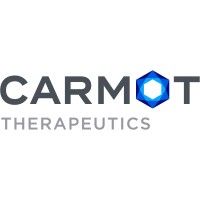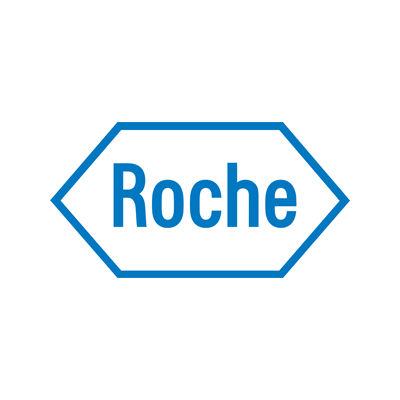预约演示
更新于:2026-02-05
CT-868
更新于:2026-02-05
概要
基本信息
药物类型 合成多肽 |
别名 Dual GLP-1R/GIPR agonists(Carmot Therapeutics)、CT 868、CT-868 + [4] |
作用方式 激动剂 |
作用机制 GIPR激动剂(胃抑素受体激动剂)、GLP-1R激动剂(胰高血糖素样肽-1激动剂) |
非在研适应症 |
非在研机构- |
最高研发阶段临床2期 |
首次获批日期- |
最高研发阶段(中国)- |
特殊审评- |
登录后查看时间轴
关联
5
项与 CT-868 相关的临床试验NCT06062069
A Phase 2, Double-Blind, Randomized, Placebo-Controlled Study to Evaluate the Efficacy, Safety, Tolerability, and Pharmacokinetics of CT-868 Administered for 16 Weeks to Overweight and Obese Adult Participants With Type 1 Diabetes Mellitus
This study will evaluate the changes in glycemic control in overweight and obese adults with Type 1 Diabetes Mellitus after receiving CT-868 for 16 weeks. The effectiveness and safety of CT-868 will be compared to placebo. All participants will continue with their standard diabetes care using either an insulin pump (CSII) or multiple daily injections (MDI). Alongside their designated treatment, participants will receive guidance on managing their diabetes, including monitoring blood glucose levels and diet and exercise recommendations. Treatment assignments, either CT-868 plus insulin or placebo plus insulin will be randomly determined.
开始日期2023-10-19 |
申办/合作机构 |
NCT05794581
A Randomized, Double-Blind, Placebo and Comparator-Controlled Crossover Study to Assess the Effects of CT-868 Treatment on Glucose Homeostasis in Participants with Type 1 Diabetes
This study will be conducted primarily to evaluate the effects of CT-868 on glucose homeostasis in participants with Type 1 Diabetes Mellitus.
开始日期2023-03-21 |
申办/合作机构 |
NCT05110846
A Randomized, Double-Blind, Placebo-Controlled, Parallel Group, Multiple-Center Study to Evaluate the Efficacy, Safety, and Tolerability of CT-868 Administered for 26 Weeks to Overweight and Obese Participants With Type 2 Diabetes Mellitus
A study to assess the effect of CT-868 in lowering glycated hemoglobin A1c (HbA1c) in overweight and obese participants with inadequately controlled Type 2 diabetes mellitus (T2DM).
开始日期2022-02-22 |
申办/合作机构 |
100 项与 CT-868 相关的临床结果
登录后查看更多信息
100 项与 CT-868 相关的转化医学
登录后查看更多信息
100 项与 CT-868 相关的专利(医药)
登录后查看更多信息
3
项与 CT-868 相关的文献(医药)2021-07-03·Expert opinion on emerging drugs2区 · 医学
Emerging glucagon-like peptide 1 receptor agonists for the treatment of obesity
2区 · 医学
Review
作者: Jepsen, Mathies M. ; Christensen, Mikkel B.
Introduction: Obesity is a growing threat to public health, increasing risks of numerous diseases and mortality, and impairing quality of life. If current trends continue, more than 1.1 billion individuals will have obesity in 2030, corresponding to almost 2.5 times the number of adults currently living with diabetes. There is a strong interest in developing obesity treatments based on glucagon-like peptide-1 (GLP-1) agonism, which have proved to limit morbidity and mortality in type 2 diabetes.Areas covered: This review provides an overview of current compounds containing GLP-1 receptor agonism in clinical development for obesity, with mono-activity at the GLP-1 receptor (PF-0688296, glutazumab, semaglutide) or engaging one or more other endogenous hormonal systems involved in energy balance and metabolism, including glucagon, oxyntomodulin, glucose-dependent inhibitory peptide and amylin (CT-868, CT-388, AMG 133, tirzepatide, NNC9204-1177, JNJ-54,728,518, SAR425899, pegapamodutide, MK8521, cotadutide, efinopegdutide, BI-456,906, cagrilintide + semaglutide 2,4 mg, HM15211, NNC9204-1706).Expert opinion: Many novel compounds employing GLP-1 receptor agonism are in clinical development. Semaglutide is farthest in clinical development and will presumably become a benchmark for this class of novel anti-obesity compounds.
DIABETES OBESITY & METABOLISM
Efficacy and safety of
CT
‐868, a novel, fully biased, dual glucagon‐like peptide‐1/glucose‐dependent insulinotropic polypeptide receptor agonist, in type 2 diabetes: A double‐blind, randomized placebo controlled phase 2 trial
Article
作者: Elliott, Michael A. ; Wu, Jingtao ; Garcia‐Reza, Raymundo ; Bialonczyk, Damian ; Sonnenberg, Gabriele E. ; Argüelles‐Tello, Federico A. ; Chakravarthy, Manu V. ; Frias, Juan P. ; González‐González, José Gerardo ; Acosta, Luis ; Hansen, Stig K.
Abstract:
Aims:
To assess the glycaemic efficacy and safety of CT‐868, a cAMP signal‐biased, dual glucagon‐like peptide‐1/glucose‐dependent insulinotropic polypeptide receptor agonist, in participants with type 2 diabetes (T2D).
Materials and Methods:
This 26‐week (W), phase 2, randomized, double‐blind placebo‐controlled trial enrolled adults with T2D, Body Mass Index ≥27 kg/m
2
, and glycated haemoglobin (HbA1c) 7.0–10.0%. Participants were randomized (1:2:1) to once‐daily CT‐868 1.75 mg, 4.0 mg, or placebo. Due to COVID‐19‐related CT‐868 supply constraints, some participants randomized to 4.0 mg received 3.25 mg maximum and were analysed as a separate dose arm. The primary endpoint was change from baseline in HbA1c at W26. Secondary endpoints included changes from baseline to W26 in fasting glucose, 7‐point self‐monitored blood glucose (SMBG), body weight, lipids and the occurrence of adverse events (AEs).
Results:
Overall, 103 participants were enrolled (CT‐868 1.75 mg,
n
= 26; 3.25 mg,
n
= 18; 4.0 mg,
n
= 32; placebo,
n
= 27). Clinically meaningful and statistically significant improvements in HbA1c were observed with CT‐868 at W26 (−1.61 to −2.24%‐points vs. placebo; all
p
< 0.001). Body weight was modestly reduced with CT‐868 4.0 mg at W26 (−2.9% vs. placebo,
p
< 0.001). CT‐868 improved fasting glucose, SMBG, and most lipid parameters vs. placebo. AEs were mostly mild/moderate. No participants experienced hypoglycaemia.
Conclusions:
CT‐868 1.75 to 4.0 mg yielded robust, clinically meaningful decreases in HbA1c, supporting potent glycaemic‐lowering effects and improved key lipid parameters in participants with overweight/obesity and T2D, despite modest weight loss. CT‐868 was well tolerated, supporting future investigation of higher doses to maximize weight loss.
Biomolecules
Incretin-Based Multi-Agonist Peptides Are Neuroprotective and Anti-Inflammatory in Cellular Models of Neurodegeneration
Article
作者: Li, Yazhou ; Tweedie, David ; Greig, Nigel H. ; Kopp, Katherine O. ; Glotfelty, Elliot J.
Glucagon-like peptide-1 (GLP-1)-based drugs have been approved by the United States Food and Drug Administration (FDA) and are widely used to treat type 2 diabetes mellitus (T2DM) and obesity. More recent developments of unimolecular peptides targeting multiple incretin-related receptors (“multi-agonists”), including the glucose-dependent insulinotropic polypeptide (GIP) receptor (GIPR) and the glucagon (Gcg) receptor (GcgR), have emerged with the aim of enhancing drug benefits. In this study, we utilized human and mouse microglial cell lines, HMC3 and IMG, respectively, together with the human neuroblastoma SH-SY5Y cell line as cellular models of neurodegeneration. Using these cell lines, we studied the neuroprotective and anti-inflammatory capacity of several multi-agonists in comparison with a single GLP-1 receptor (GLP-1R) agonist, exendin-4. Our data demonstrate that the two selected GLP-1R/GIPR dual agonists and a GLP-1R/GIPR/GcgR triple agonist not only have neurotrophic and neuroprotective effects but also have anti-neuroinflammatory properties, as indicated by the decreased microglial cyclooxygenase 2 (COX2) expression, nitrite production, and pro-inflammatory cytokine release. In addition, our results indicate that these multi-agonists have the potential to outperform commercially available single GLP-1R agonists in neurodegenerative disease treatment.
82
项与 CT-868 相关的新闻(医药)2026-02-04
罗氏
罗氏控股(Hoffman-La Roche,又名 Roche Holding AG)公布了强劲的 2025 年业绩,核心每股收益按固定汇率计算增长 11%,而稳健的制药部门推动了增长。
RHHBY 的产品线,尤其是在肥胖症和心血管疾病领域,使其成为 GLP-1 市场潜在的第三大参与者。
管理层预计 2026 年销售额将实现中等个位数增长,核心每股收益将实现高个位数增长,同时还将提高股息。
我维持对 RHHBY 股票的买入评级,理由是其拥有强大的产品组合、丰富的研发管线,并且到 2030 年之前没有明显的增长威胁。
投资概览
瑞士制药巨头罗氏公司(Hoffman-La Roche,又名罗氏控股公司,股票代码:RHHBY)于今日早盘前公布了其2025财年全年业绩。我在11月底发布的上一份关于罗氏股票的报告中给予了“买入”评级,自报告发布以来,其股价已上涨约13%。
如上所示,罗氏公布2025年全年总营收为615亿瑞士法郎,约合800亿美元。可以看出,不利的汇率对业绩产生了影响,按固定汇率计算,营收增长了7%,但以瑞士法郎计算仅增长了2%。
按固定汇率计算,每股收益增长11%,达到19.46瑞士法郎,约合25.3美元。鉴于罗氏目前的市值为3520亿美元(今日盘前),其市销率约为4.4倍,市盈率约为30倍(根据TradingView的数据,以过去12个月的数据计算)。
我在上一篇文章中提到,罗氏自疫情后失去大部分与新冠病毒检测相关的收入以来,一直难以实现营收增长,营业收入也停滞不前。但按固定汇率计算,核心营业利润同比增长 13%,达到 218.3 亿瑞士法郎;核心净利润同比增长 11%,达到 166 亿瑞士法郎;核心每股收益从 18.8 瑞士法郎增至 19.46 瑞士法郎。
经营性自由现金流和自由现金流分别从201亿瑞士法郎降至161.6亿瑞士法郎,以及从153亿瑞士法郎降至118亿瑞士法郎。截至2025年底,净债务为162亿瑞士法郎,低于2024年底的173亿瑞士法郎。
罗氏预计 2026 年销售额将实现中等个位数增长,核心每股收益将实现高个位数增长,并且股息将会增加,目前股息收益率约为 2.8%。
分析:制药部门展现强劲增长势头,潜力巨大
尽管其诊断部门继续受到中国医疗价格改革的影响(尽管管理层在其盈利新闻稿中指出,“对病理学和分子解决方案的需求增长足以抵消”中国不利因素的影响),但其制药部门似乎正在蓬勃发展。
按固定汇率计算,美国销售额同比增长8%,欧洲同比增长5%,日本同比增长5%,其他地区同比增长14%。值得注意的是,罗氏已通过与美国政府签署协议应对美国可能对进口药品征收关税的威胁,承诺增加在美国的生产,如下图所示(来源:罗氏2025财年业绩报告)。
如下所示,罗氏上市药物的大部分收入都在逐年增长,包括其大多数最畅销的药物,例如:多发性硬化症治疗药物 Ocrevus,2025 年收入达 70 亿瑞士法郎;血友病 A 药物 Hemlibra,48 亿瑞士法郎;眼病治疗药物 Vabysmo,41 亿瑞士法郎;实体瘤癌症药物 Tecentriq,35.7 亿瑞士法郎;哮喘药物 Xolair,30 亿瑞士法郎;乳腺癌药物 Phesgo,24 亿瑞士法郎;脊髓性肌萎缩症治疗药物 Evrysdi,18 亿瑞士法郎;以及血液癌症药物 Polivy,15 亿瑞士法郎。
据我计算,罗氏制药约有 15 种药物在 2025 年达到“重磅炸弹”(年收入超过 10 亿美元),约占总收入(包括诊断收入)的 70%,而且大多数药物的收入都在增长,距离专利到期还有很多年,尽管像赫赛汀(乳腺癌)、阿瓦斯汀(实体瘤)和阿克珠单抗(类风湿性关节炎)这样的抗癌药物的专利已经到期,我们也可以注意到帕妥珠单抗和特克立克的专利可能在 2027 年左右到期。
幸运的是,罗氏拥有丰富的在研产品线,涵盖多种适应症,为产品组合提供了强有力的支持——如下所示,2026 年的监管申报和数据公布将是罗氏的主要价值驱动因素:
像 giredestrant(乳腺癌)、vamikibart(眼病)、fenebrutinib(“多发性硬化症”)和 sefaxersen(肾病)这样的药物很可能成为罗氏未来的重磅炸弹级畅销药,这应该会支撑人们对制药部门未来收入增长的乐观预期(我估计到 2028 年将超过 600 亿瑞士法郎),但可以说,罗氏研发管线中最有前途、潜在利润最高的资产是那些针对肥胖症的药物。
罗氏的GLP-1疗法——有望成为肥胖症市场的第三大巨头?
读者们可能已经知道,以礼来公司(LLY)的替拉帕肽(tirzepatide)为代表的胰高血糖素样肽-1(GLP-1)类药物,其获批用于治疗肥胖症和2型糖尿病(T2D),商品名为Zepbound/Mounjaro;以及诺和诺德公司(NVO)的司美格鲁肽(semaglutide),其获批用于与Wegovy/Mounjaro相同的适应症,已成为全球最畅销的药物类别——到2025年,司美格鲁肽和替拉帕肽的总收入将超过650亿美元。
其他“大型制药公司”精英——安进(AMGN)、艾伯维(ABBV)、默克(MRK)、辉瑞(PFE)、阿斯利康(AZN)、再生元(REGN)和罗氏本身——都在争先恐后地开发自己的 GLP-1 资产,以挑战礼来/诺和诺德的双寡头垄断地位,而罗氏当然有理由认为自己处于最有利的位置,能够率先进入市场。
如上所示,目前在研药物种类繁多,并非全部都是GLP-1受体激动剂,也并非全部针对肥胖症。罗氏通过收购89Bio获得了pegozafermin,该交易金额可能高达约35亿美元。罗氏希望pegozafermin能够获批用于治疗代谢功能障碍相关性脂肪性肝炎(MASH),该适应症市场价值超过100亿美元,目前仅有Madrigal Pharma(MDGL)的Rezdiffra和诺和诺德的semaglutide获批用于治疗MASH。
罗氏正与 Alnylam (ALNY) 合作,利用其非常成功的 RNA 干扰方法开发齐贝西兰药物,可能为此支付约 28 亿美元——分析师认为,该药物有朝一日的年收入峰值可能超过 30 亿美元。
Zealand Pharma 是长效胰淀素类似物 petrelintide(胰淀素被视为 GLP-1 的潜在竞争对手)的合作伙伴,该药物已进入 3 期研究;罗氏也于 2023 年达成 27 亿美元的协议收购 Carmot Therapeutics,从而获得了以下三个候选药物:
CT-388是主要候选药物,是一种已进入II期临床试验的双重GLP-1/GIP受体激动剂,用于治疗伴有或不伴有2型糖尿病的肥胖症患者。该药物每周皮下注射一次,具有作为单药疗法或联合疗法改善体重减轻效果的潜力,并有望拓展至其他适应症。
CT-996 是一种每日一次口服的小分子 GLP-1 受体激动剂,目前处于 1 期临床试验阶段,旨在治疗患有或未患有 2 型糖尿病的肥胖症患者。
CT-868 是一种处于 2 期临床试验阶段的每日一次皮下注射的双重 GLP-1/GIP 受体激动剂,旨在治疗超重或肥胖的 1 型糖尿病患者。
本周早些时候,罗氏公司公布了一项II期临床研究的结果,该研究共纳入469名患者,CT-388在48周时使患者平均体重减轻约22.5%。接受最高剂量治疗的患者中,95.7%的体重减轻超过5%,26.1%的体重减轻超过30%。
这些结果似乎表明 CT-388 与 tirzepatide/semaglutide 处于同一水平,尽管罗氏需要在提交审批前进行 3 期研究,与此同时,诺和诺德和礼来都已进入口服 GLP-1 领域,分别推出了口服 Wegovy(已获批准并上市)和 orforglipron(可能在 4 月份获批)。
罗氏的策略是“混合搭配”其各种产品,而不是追求像索玛鲁肽和替拉帕肽那样的“超级重磅炸弹”销售,但我推测,这家制药公司希望长期从该系列产品中获得超过 200 亿美元的年收入峰值。
总结:罗氏的业绩和前景完全符合预期——值得长期持有
罗氏股价在过去六个月上涨了约50%,但五年涨幅仅为28%,十年涨幅也只有75%。五年涨幅可能受到了疫情以来公司营收和利润增长乏力的影响,但我认为,六个月涨幅反映了市场对罗氏现有产品组合以及肥胖/心血管疾病治疗业务日益增长的乐观情绪。
在我看来,该公司在 2025 年克服了一些重大障碍——在特朗普政府动荡的第一个完整年度(尤其是在制药行业)与美国达成协议;尽管在中国面临逆风,但其诊断部门仍保持增长(按固定汇率计算);营收整体实现了高个位数百分比的增长,核心每股收益实现了两位数百分比的增长;提高了股息;并在不偏离其肿瘤学、免疫学、血液学和神经科学等核心部门的情况下,推进了其针对 GLP-1 / 胰淀素 / 肥胖症 / 心血管疾病的研发管线。
总而言之,我认为罗氏是目前制药行业中比较好的投资标的之一,从现在到2030年,其营收和利润的持续增长都不会受到明显威胁。我去年买入了这只股票,在经历了2025年上半年的波动之后,这笔投资开始获得回报。我对2026年的发展充满期待,尤其是RHHBY(罗氏生物制药)的产品线,在我看来,它蕴藏着巨大的潜力。
编者按:本文讨论的一只或多只证券未在美国主要交易所上市交易。请注意与这些股票相关的风险。
财报并购IPO
2026-02-02
·氨基观察
氨基观察-创新药组原创出品
作者 | 武月
曾经的肿瘤霸主正从“青黄不接”的焦虑中走出。
罗氏这个昔日的肿瘤霸主,交出了一份营收增长7%、制药业务增长9%的稳健答卷。更重要的是,数字背后是一幅“重整河山”的清晰图景。Phesgo、Xolair、Ocrevus、Hemlibra、Vabysmo和Polivy六大引擎全开,不仅覆盖了老药下滑的窟窿,也拉动着罗氏的制药业务继续增长。
在肿瘤腹地,Phesgo以48%的增速证明HER2防线依然坚固;在血液瘤战场,Polivy正攻城略地,复兴之势持续。罗氏CEO更是反复提及的“不会遭遇专利悬崖”,因为2030年之前将推出19款新药,其中 16 款具备重磅炸弹潜力,9 款销售峰值将突破 30 亿美元。
这其中,乳腺癌领域诞生新王牌giredestrant,罗氏对其信心满满;尤其是在兵家必争的减重领域,罗氏再次高调宣布要成为“第三极”。
当罗氏将百亿美元赌注押向肥胖、阿尔茨海默病等慢性病领域时,一场关乎未来十年的战略豪赌已然展开。成功,则河山永固;若有差池,下一个悬崖或许已在视野之中。
无论如何,罗氏让我们在行业史上最严峻专利悬崖面前看到了一种思路:保持战略定力,敢于突破舒适区,才能在不确定性中找到新的增长答案。毕竟,在创新药的战场上,从来没有永恒的王者,只有不断进化的幸存者。
/ 01 /
乳腺癌新王牌
2025年,罗氏的制药业务收入为476.69亿瑞士法郎(约576.27亿美元),同比增长9%。
细看罗氏的制药业务神经科学、免疫、眼科领域的增长更为明显,分别同比增长11%、12%和10%。不过,对于曾经的肿瘤霸主罗氏来说,更重要的是,肿瘤作为最大收入来源,实现了连续八个季度的增长,2025年贡献239.38亿瑞士法郎,同比增长6%。
Phesgo、Xolair、Ocrevus、Hemlibra、Vabysmo 五大重磅产品以及正在加速爆发的Polivy,成为拉动罗氏制药业务的绝对核心,2025年合计新增销售额为36亿瑞士法郎,完全覆盖了Avastin、Herceptin等专利到期产品7亿瑞士法郎的销售额下滑。
其中,表现最亮眼的莫过于Phesgo。2025年销售增幅高达48%,这款将帕妥珠单抗与曲妥珠单抗“双靶合一”的皮下注射制剂,凭借剂型革新的优势,正在全球加速放量。罗氏在财报电话会议上表示,Phesgo全球转化率持续攀升,目前已达54%,正朝着60%的新目标稳步迈进。
换句话说,随着转化率的提升,Phesgo还将保持这种增长态势。从曲妥珠单抗一直到帕妥珠单抗、恩美曲妥珠单抗,再到Phesgo,HER2靶点一直是罗氏的重中之重。
尽管目前HER2领域竞争十分激烈,但罗氏对未来依然充满信心,明确表示其HER2产品线将在2026年达到约90亿瑞士法郎的峰值,然后平稳过渡至2030年,并维持约40亿瑞士法郎的尾部收入。这40亿瑞士法郎主要来自Phesgo(30亿)和Kadcyla(10亿)。
当然,作为曾经的乳腺癌霸主,罗氏的野心不止于守成。HER2之外,其正全力开拓ER+(激素受体阳性)乳腺癌市场。这也是乳腺癌最常见的亚型,ER阳性乳腺癌约占全部病例的70%,且高达三分之一的早期乳腺癌患者在接受辅助内分泌治疗期间或之后,会经历复发,许多患者由于安全性或耐受性问题不得不提前中断或停止治疗,这些局限性凸显了对更有效、耐受性更好的治疗方案的需求。
而罗氏认为其口服SERD药物Giredestrant,成为ER阳性乳腺癌治疗新一线疗法的潜力十足。尽管公司官方给出的峰值销售指引是“超过30亿美元”,但管理层的实际预期显然要高得多。罗氏CEO Teresa Graham在电话会上多次强调、重申Giredestrant成为ER新一线药物,尤其是在辅助用药领域的广阔前景。
罗氏的信心来源于两项关键III期胜利:用于晚期二线治疗的evERA研究,以及2025年底公布阳性结果的、用于早期辅助治疗的lidERA研究。后者尤其重要,它首次证明口服SERD在降低早期乳腺癌复发风险上显著优于标准内分泌治疗,覆盖了约55%的辅助治疗人群。
对此,Teresa Graham难掩兴奋:“你不可能看了lidERA的结果而不相信(改变标准疗法)会成为现实。”她进一步描绘蓝图:在高达200-300亿美元的ER+乳腺癌市场中,辅助治疗占三分之二,Giredestrant的目标是成为新的内分泌治疗基石。
但“药王”之路从无坦途。SERD赛道竞争日渐白热化,礼来、阿斯利康等巨头皆有重兵布局。更关键的挑战在于临床医生的接受度。有医生指出,将口服SERD定位为早期疾病新标准,路径必然漫长且严格;另外lidERA试验对照组未纳入当前标准的“AI(芳香化酶抑制剂)+CDK4/6抑制剂”方案,说服力不足。能否在激烈竞争中证明临床价值,将是 Giredestrant能否一改乳腺癌格局,成为罗氏新王牌的关键。
/ 02 /
血液瘤持续复兴
对于罗氏来说,其在血液领域的领军地位毋庸置疑,但自利妥昔单抗专利过期后,其在自己最为强势的血液学领域,节节败退。血友病双抗Emicizumab和CD79b靶向ADC Polivy的崛起,阻止了这一颓势。
“血液瘤业务正在复兴”,这一罗氏在2024年抛出的判断,在2025年继续得到了验证。
全年血液学产品线销售额达86亿瑞士法郎,同比增长15%,成为制药业务中增速最快的领域之一,而Polivy正是这场“复兴运动”的核心推手。
2021年8月,一项Polivy联合化疗方案(R-CHP)的关键临床3期研究显示:Polivy+R-CHP一线治疗弥漫性大B细胞淋巴瘤(DLBCL),将患者疾病进展、复发或死亡风险降低了27%。
经历重重监管审批,2023年4月Polivy获FDA批准,与R-CHP联用一线治疗DLBCL患者,成为20年来首个DLBCL的一线治疗方案。自此,Polivy快速放量,2023年全球销售额实现翻倍增长,突破10亿美元。
2025年,Polivy销售额达14.7亿瑞士法郎,同比增长38%,更实现两个关键里程碑:一是在美国IPI 2-5级(中高危)DLBCL患者中,成为最常用的一线治疗方案;二是仅一线DLBCL适应症销售额就突破10亿瑞士法郎。
目前,其一线市场占比约36%,全球治疗患者超6万。而罗氏曾预计,Polivy将占据一线DLBCL约65%的市场份额。这意味着,Polivy还将继续增长。
与此同时,罗氏在双抗赛道的布局也开始收获果实。CD20/CD3双抗Columvi在三线及以上DLBCL治疗中快速渗透,2025年销售额达2.88亿瑞士法郎,同比增长75%;另一款双抗Lunsumio则在滤泡性淋巴瘤领域表现亮眼,皮下制剂获批后销售额同比增长68%至 1.14亿瑞士法郎。
不过,Columvi被FDA泼了一盆冷水,驳回其二线上市申请。这也导致这些后线产品的峰值预期有所下降,由10亿瑞士法郎降至数亿。
对于罗氏来说,更重要的是,这些产品共同构成了其在血液瘤领域多层次、差异化的火力矩阵。在昔日的王牌利妥昔单抗专利到期后,罗氏通过迭代创新,用更精准、便捷的疗法重新站住脚跟,完成了从单抗时代到ADC与双抗时代的引擎切换。
/ 03 /
百亿美金豪赌慢病“炸弹”
在经历专利悬崖痛击后,罗氏决定拓展业务边界,不能将所有鸡蛋放在同一个篮子里。
2025年研发日上,罗氏明确表示,过去十年,公司已经成功在多发性硬化症、血友病等新疾病领域占有一席之地,下个十年将进入阿尔茨海默症、高血压、肥胖等大型疾病领域。
资金流向是最诚实的宣言。2025年以来,罗氏达成了超过20笔交易,总金额逾200亿美元,其中绝大多数集中在代谢和自免领域。这也是罗氏历史上首次在肿瘤之外的业务投入更多资金。
其中,减重是罗氏布局的重心。目标是成为肥胖领域的全球前三玩家,罗氏在2025年财报电话会上再次强调这一目标。为此,罗氏斥重金构建了差异化减重管线:
2023年底以27亿美元收购Carmot,获得GLP-1/GIP双受体激动剂CT-388、口服GLP-1 受体激动剂CT-996;2025年3月,与Zealand Pharma达成53亿美元的合作,仅首付款就高达16.5亿美元,引进长效胰淀素类似物Petrelintide;9月又以35亿美元收购89bio,将FGF21类似物Pegozafermin收入囊中,进军MASH赛道。
总之,罗氏认为其建立的产品组合,能够非常容易地满足减重患者可能拥有的几乎所有需求。这或许就是罗氏希望在减重领域成为全球前三的底气。
按照其规划, 2030 年前推出19 款新药,其中 17款具备重磅炸弹潜力,1款峰值预计在 20 亿美元至 30 亿美元间,10 款突破破 30 亿美元,大多来自肥胖、高血压、脂肪肝、阿尔茨海默病等慢病领域。
仅减重领域,就有望为罗氏贡献 2 个年销售 30 亿美元以上的产品(组合),分别是 GLP-1 药物组合(CT-388、CT-868、CT-996)和长效胰淀素类似物 Petrelintide。
其中,GLP-1/GIP双受体激动剂CT-388日前已经启动治疗伴2型糖尿病的肥胖或超重患者的3期研究,并公布了减重2期临床的积极结果:第48周时,接受治疗的肥胖或超重患者,实现了22.5%的安慰剂校正体重下降,且未出现体重下降平台期。此外,CT-388与Petrelintide还有联用的潜力。
不止肥胖,罗氏在MASH、高血压等慢病领域也布下重兵。Pegozafermin的MASH适应症已进入3期临床,预计2027年公布结果;从Alnylam引进的siRNA疗法Zilebesiran,高血压治疗的临床也已进入3期,有望实现半年一次给药的突破;TL1A单抗 Afimkibart则在IBD和MASH领域同步推进。
这些都是罗氏眼中的峰值超30亿美元的重磅炸弹。也正因此,罗氏CEO在谈及BD策略时显得底气十足,由于没有迫在眉睫的专利悬崖,罗氏“没有压力去为了买而买”,但会“密切关注中国正在发生什么”。
未来几年,将是罗氏这些重磅炸弹的密集验证期,这场豪赌交给时间来验证。
/ 04 /
总结
创新药的世界没有永恒的王者,只有不断的进化。
从曾经的“肿瘤霸主”到如今的“多赛道玩家”,罗氏重整河山之路,本质上是一场巨头的自我革新。
当然,一切雄心仍需接受科学与市场的最终检验。Giredestrant能否重塑乳腺癌格局,成为其新王牌?重金押注的GLP-1产品能否在诺和诺德与礼来的统治下杀出重围?这些问题的答案,将决定罗氏绘制的这幅新蓝图,究竟是海市蜃楼,还是真正可持续的江山远景。
PS:欢迎扫描下方二维码,添加氨基君微信号交流。
专利到期财报
2026-01-27
2026罗氏JPM的分享题为:带来下一个创新的周期,是由罗氏制药的head Teresa带来的。
首先,罗氏表达了2026年要做好三件事:
第一件事,最大化目前已经上市产品的价值,它们将会驱动罗氏的业务持续增长到2028年。目前罗氏有17个重磅产品驱动着不同业务领域的增长,如何评价一个产品是不是重磅产品呢?罗氏的标准是年销售额可以达到10亿瑞士法郎。
那么这17个重磅产品分别是什么呢?我们从罗氏最强大的领域开始看起,
肿瘤:肺癌Alecensa (安圣莎),血液肿瘤Venclexta (维奈克拉,艾伯维合作),淋巴瘤Polivy (优罗华),实体瘤Tecentriq (泰圣奇),乳腺癌Perjeta (帕捷特),乳腺癌Phesgo(帕妥珠单抗/曲妥珠单抗组合),乳腺癌Kadcyla (赫赛莱);
当然还有曾经带给罗氏辉煌的“三驾马车”,虽然面临生物类似物竞争,但在 2024 财年销售额仍超过 10 亿瑞郎,它们是:实体瘤Avastin (安维汀),乳腺癌Herceptin (赫赛汀),淋巴瘤MabThera (美罗华)。
然后是
血液:血友病Hemlibra (艾美赛珠单抗);
神经科学:多发性硬化Ocrevus (奥瑞珠单抗),脊髓性肌萎缩症Evrysdi (艾满欣)
免疫学:脊髓性肌萎缩症Evrysdi (艾满欣),过敏Xolair(茁乐,诺华合作),肾科Gazyva (佳罗华,淋巴瘤也有涉及),类风关Actemra (雅美罗)
眼科:眼底黄斑疾病Vabysmo (罗视佳)
所以,结合这个,我们可以看到曾经和当下的罗氏,它什么最强了吧?今天这套片子将帮助我们看到罗氏的未来。
第二件事,做好关键产品的上市,那些即将上市的产品和适应症也会进一步驱动公司业务自26年以后的增长。
第三件事,推动新一代产品分子开发的进展,这里罗氏特意用了一个词,post bar,说明这些分子是罗氏通过谨慎评估筛选出来的,是有一定标准的,结合举例,自然是患者群体够大,未被满足需求够高的疾病领域和产品,比如阿尔兹海默症和减肥。可能是眼红礼来这几年在资本市场的表现,所以罗氏也要把战略重点触及到这些一旦取得进展便足以撬动增长的疾病领域。
所以,罗氏正在努力拓宽并使自己的管线更加多样化,而不是像之前更侧重于聚焦在肿瘤,这里它用了一个词,transformational potential,想必这里的transformational不仅仅意味着推动治疗领域的变革,同时也可以理解为罗氏带来巨大的变革。
那么做好这三件事的基石又是什么?罗氏认为首先是在做生意上的高度自律,这很好理解就是财务自律,要控制财务预算嘛,其次就是在做研究上的高度严谨,这个研究我觉得有两个方面,一个是科学证据数据上的严谨,一个是端对端科学数据转化为商业价值上的严谨。只有这样才能持续带来增长。不同的公司风格和文化不一样,个人认为罗氏的基因文化就是科学驱动下的产品研发和创新。
罗氏大约有60%的研发管线和销售收入是来自于外部合作产生的。罗氏对自身内部的定义是:罗氏制药、基因泰克和之前并购来的Spark,而日本中外制药,罗氏对其定义为一种战略联盟的合作,所以来自中外制药的产品和销售额也包括在这60%内,从这张图上可以看出日本中外制药也给罗氏带来了几个非常好的产品,比如:安圣莎,舒友利乐。
罗氏把目前上市的产品分为了四类,分别是:1.临床开发阶段买过来的,2.有外部技术合作的产品,3.日本中外制药开发的产品,4.罗氏自己开发的产品。所以,我们可以看到有纯正罗氏基因的产品并不多,比如:泰圣奇,OCREVUS,LUSUMIO,COLUMVI,ITOVEBI;而买过来的产品就很多了,这里就不列举了;我们再来看有外部技术合作的产品:
优罗华:我们知道它是一个ADC类药物,它是罗氏与Seagen公司合作开发的产品,罗氏通过基因泰克获得了 Seagen 技术的授权,负责产品的后续临床开发、制造和商业化。作为合作的一部分,罗氏在产品达到特定临床或监管里程碑时需向 Seagen 支付里程碑款项,并在产品上市销售后支付特许权使用费。
Phesgo:罗氏采用了Halozyme的ENHANZE® 皮下递送技术(利用重组人透明质酸酶),使得原本需要数小时静脉滴注的药物可以在几分钟内完成皮下注射。
Vabysmo:全球首个获批用于眼科治疗的双特异性抗体,采用了 CrossMAb 技术平台。该平台最初是由罗氏旗下的德国研发中心(Roche Penzberg)开发的,但由于罗氏与中外制药 (Chugai) 之间长期的战略技术交换协议,这一技术在开发过程中整合了大量的外部工程学专长。在演示文稿中,Vabysmo 被标注为合作产品,是因为它的分子结构设计涉及了复杂的抗体工程授权,用于同时实现对两个靶点(VEGF-A 和 Ang-2)的精准结合。所以,这项技术也是来自于日本的中外制药(Chugai),它不仅仅是一个药企,它更像是罗氏体系内的“高端技术研究院“。在抗体工程,尤其是双特异性抗体的结构设计、半衰期延长和工业化生产方面,中外制药的技术平台处于世界第一梯队,是罗氏维持其在生物药领域领导地位的关键支柱。
罗氏这种”买买买“及外部合作的策略,加速了它管线开发的速度,当下和未来它还是会有很多类似的外部合作,演示文稿里面也列举了一些。
接下来,罗氏就详细罗列了已经上市的产品在2025年的表现,其实就是前面片子里17个重磅产品中14个的表现,那为啥少了三个,自然是“廉颇老矣,尚能饭否”的“三家马车”,但“老将廉颇”还是很能打的,这么多年给罗氏创造了无数的现金流,到目前为止年销售额还是在10亿瑞郎以上。
从这张图我们可以看出来,罗氏的肿瘤产品的销量还是占据了半壁江山,但是增长已经远远不及左半边领域的非肿瘤产品,可预测的是肿瘤产品的销售额和占比将会被非肿瘤产品管线在不久的将来超越。
新产品上,片子上罗列了四大领域,五个分子,2026年罗氏可能会有三个新产品上市,我们知道Gazyva和Satralizumab目前已经上市,所以,2026年潜在可以上市的新产品是giredestrant,fenebrutinib,vamikibart,分别会为罗氏在乳腺癌,中枢神经和眼科领域贡献销量,而已经上市的两个产品将会在新的领域免疫和眼科上老树开新花。
接下来,让我们来详细聊聊这些产品,首先是乳腺癌产品Giredestrant,它是新一代口服选择性雌激素受体降解剂(SERD),它通过降低雌激素受体(ER)数量并阻断其信号传导来发挥作用的内分泌治疗药物。与传统的他莫昔芬(SERM)仅阻断受体不同,SERD 能够直接“清除”受体本身。
在左边这张图中,我们可以看到罗氏正试图以Giredestrant 作为内分泌治疗的基础骨干,通过针对不同疾病阶段和耐药机制的组合疗法,取代现有的标准治疗。
对于早期雌激素受体阳性乳腺癌,III 期临床研究lidERA显示对于中高危患者,术后使用 Giredestrant或Giredestrant联合CDK4/6抑制剂可以带来更好的效果。
而对于晚期/转移性雌激素受体阳性乳腺癌,无论前序是否接受过芳香化酶抑制剂的治疗,或是对芳香化酶抑制剂敏感或耐药的患者,Giredestrant联合CDK4/6抑制剂的方案正在一线治疗关键临床探索中去证明其潜在的疗效和安全性。
而在二线,Giredestrant联合依维莫司 (mTOR 抑制剂)已经证明了其积极的疗效。而Giredestrant联合GDC-1498(一款高效且高选择性的 CDK4 抑制剂)的疗效目前也在探索中。
总之,在罗氏的规划中,Giredestrant及其联合治疗将会成为改变雌激素受体阳性乳腺癌从早期到晚期治疗的新范式。
同时,罗氏还介绍了其在乳腺癌上不同信号通路的潜在BIC分子,
Giredestran作为内分泌治疗(ET)的Backbone;
Itovebi(PI3K/AKT/mTOR)作为一款针对PIK3CA突变患者的口服精准治疗药物,具有极高的靶向选择性,能在提供强效抗肿瘤作用的同时减少毒性(如高血糖风险),允许在标准剂量下与内分泌疗法和 CDK4/6 抑制剂联用,且已在临床中显著延长了患者寿命;
RG6794 (GDC-4198)是一款高效的 CDK4 抑制剂,除了抑制 CDK4,它还具有显著的抗 CDK2 活性。这旨在解决目前临床上对CDK4/6 抑制剂产生耐药的问题;
ZN-1041是一款高度选择性、具备血脑屏障通透性的 HER2 酪氨酸激酶抑制剂(TKI),专门针对乳腺癌脑转移患者,能够有效渗透入脑,且可与现有的抗 HER2 基础疗法联用。
总之,罗氏试图通过这些针对不同耐药机制和病理特征的分子组合,为乳腺癌患者提供定制化的转型治疗方案,从而重新定义治疗范式。
我们再来聊聊罗氏的下一个明星分子,Fenebrutinib,它是一种针对多发性硬化症(MS)的口服、非共价(可逆)BTK抑制剂。它也是唯一一个在RMS(复发型多发性硬化症)和PPMS(原发进展型多发性硬化症) 临床试验中都取得了阳性结果的药物。很多药物可能只在RMS上有效,但在更难治的 PPMS 上折戟,Fenebrutinib 在这两个领域都拿到了“入场券”。
左边的图向我们展示了其双重的作用机制:针对复发型病理 (Relapsing biology),Fenebrutinib作用于外周的 B 细胞和巨噬细胞,减少急性炎症发作;针对进展型病理 (Progressive biology),Fenebrutinib作用于中枢神经系统内的 B 细胞和小胶质细胞,而小胶质细胞的过度激活被认为是导致 MS 持续残疾进展的关键。
最终Fenebrutinib通过双管齐下,显著降低残疾累积。也许正是其双重的作用机制,使其在两个适应症上都做出了阳性的结果,同时又因为它是口服剂型而不用住院输液,使其潜在使用率和使用版图都得以扩增。
而右边的图显示,与竞争对手相比,Fenebrutinib拥有更好的PK曲线,使其可以在游离血浆中的浓度更高,而只有游离并未与蛋白质结合的药物分子才能穿过血脑屏障进入大脑,去攻击那些躲在大脑里的病灶。
这张幻灯片详细列出了罗氏预计在2026年取得注册进展和临床试验结果的分子及对应的疾病领域适应症和方案,特别指出,刚刚提到的Giredestrant联合依维莫司 (mTOR 抑制剂)在CDK抑制剂经治的雌激素受体阳性/HER2阴性晚期及转移性乳腺癌的治疗申请将在今年向FDA递交。
接下来就聊到了减肥,前面在JPM礼来的文章中已经详细讲到了这个领域,我们来看看罗氏的布局。
罗氏要成为这个领域世界前三的玩家,五个分子的相关数据将会在2026年公布,以支持它们的三期临床研究。
这五个分子是:
CT-388 (GLP-1/GIP 受体双重激动剂),直接对标礼来的 Mounjaro (替尔泊肽)。它是罗氏减肥管线中的“重炮手”,在初期研究中表现出了极强的减重效果和良好的耐受性。
CT-996 (口服小分子GLP-1 受体激动剂),这是目前市场最看好的方向之一,旨在摆脱“打针”的麻烦。它主要针对那些不愿注射或处于体重维持阶段的患者。
CT-868(GLP-1/GIP 受体双重激动剂),专注于合并 1 型糖尿病的肥胖患者。这类人群的血糖和体重管理非常复杂,是目前市场上未被满足的临床需求。
Petrelintide (长效Amylin粉样蛋白类似物),这是非肠促胰岛素Non-incretin通路,它可以与GLP-1药物联用,产生协同减重效果。在减轻体重的同时,具有更好的耐受性(更少的恶心呕吐),并且在保持肌肉质量方面可能更有优势。
Emugrobart (抗肌抑素Anti-myostatin抗体),解决减肥药最大的副作用——肌肉流失,目标就是实现“只减脂肪,不减肌肉”的高质量减重。
这五个 NMEs 的 Ph II 数据都将在 2026 年集中公布,而这些数据来自六大方面:
耐受性 (Tolerability),现有的减肥药常导致恶心、呕吐等胃肠道副作用,导致患者停药。
减重天花板效应 (Ceiling effect),患者在使用现有药物 12-18 个月后,体重往往不再下降,进入平台期。
减重维持 (Weightmaintenance),一旦停止使用 GLP-1 药物,患者体重极易快速反弹。
反应不佳 (Suboptimal response),约有 20% 的患者对目前的肠促胰岛素(GLP-1 类)疗法反应平平。
肌肉流失 (Lean muscle loss),快速减重过程中,肌肉流失占比过高(可达 40%),影响代谢和健康。
相关并发症 (Comorbidities),70% 以上的肥胖患者伴有脂肪肝(MASH)、心血管疾病等并发症。
接下来就聊到了每家公司都要提及的2030,罗氏在2030年之前可能会上市19个新产品,而之前聊到的post Bar新产品包括:afimkibart, NXT007, cevostamab, CT-388, CT-868, CT-996, petrelintide, zilebesiran, peozafermin, trontinemab, prasinezumab,这个Bar从这张图上看来就是年销售额超过10亿瑞士法郎,基于这个商业评估标准,这些分子Post-bar的评估中被筛选进入到最终的临床开发中,而它们的关键临床数据最快可能会在2027年陆续公布。
从这张图不难看出,从商业角度,罗氏未来的绝对重点会是CVRM和Neurology,当然了,也要看后续的研发进展,是否都能成功,就看罗氏的押注能不能中了。但也不经要问,眼科领域会不会是一个阶段性产物,昙花一现的领域呢?
最后,罗氏比较传统,来了个总结,呼应了一下开头2026年要做好的三件事,包括聚焦当下产品的商业表现,做好接下来一些关键产品的上市,以及最为关系到罗氏未来的新一代产品的开发,以带来transformational的可能。
当下,2025年的表现一切顺利,已经上市的产品将会继续驱动罗氏的业务增长到2028年,同时2026年开始陆续上市的新产品将会驱动后续罗氏业务的进一步增长,因此当下,罗氏要做好自律,换句话说,就是财务控制,不要乱花钱,把钱花在刀刃上,那自然是关键产品的研发以及卓越的商业运营。
2025年,罗氏有12项阳性数据的公布,包括刚刚提及的乳腺癌和多发性硬化。同时还有三个产品进入到关键临床三期阶段,这些都会为罗氏后续业务增长带来潜在的推动力。
展望2026年,罗氏将继续聚焦在新产品上市以及商业执行上,同时会期待10个三期数据的公布,并有多个新产品进入到三期临床阶段。特别要强调的是减肥,其产品将会在2026年进入到late stage的开发,为未来成为该领域前三的潜在玩家而努力!
而最后一张就是罗氏的惯例了,所有对外沟通的幻灯都是以这张作为结束,翻译成中文就是以患者之需而行,这其实也反映了它的价值观,但患者的需求千千万,如果完全按照商业价值去考量,那可能很多不到10亿瑞郎年销售额的产品和适应症,将在一定程度上被排在行动的后面,甚至被放弃。不得不说,作为一家需要为股东和董事会负责的上市公司,这也是没有办法的事情,资本是逐利的。
假设我们把患者需求分为两个维度:1.疗效安全性没有得到满足,还有很大的提升空间;2.患者群体有庞大的基数,以等待更好药物的治疗。显然,大公司聚焦的都是两者兼备,或者患者足够多及时份额不高也可以有很好的现金流的领域。
少有只满足第一点,但第二点无法被满足的领域,这种有一个前提,就是疗效安全性数据突破性颠覆式进展,足以取得极高的患者份额甚至对原有标准治疗完全取代,还得没有后来竞争者,在这个前提基础下,再通过财务测算看年销售额是否可以达到一定的标准。
因此,对于人数很少,但治疗需求又很大的群体患者来说,比如罕见病,又有谁去为他们发声,为他们付出行动,并努力研发更好的药物呢?
这也许也是一种存在主义的市场需求和机会,的确还是有公司在探索的。首先,我们要向聚焦在罕见病领域的公司致敬,也要向扎根在某一领域深耕而不轻易变换方向的公司致敬。但如果权力机构,比如国家和政府审批单位,不帮助他们规避政策上的风险,不给予合理的政策和价格引导支持,那我想能坚持下来的厂家不会很多。
亚当·斯密在《国富论》中提到,“他追求的仅仅是他个人的利益,而在这种场合,像在其他许多场合一样,他被一只看不见的手引导着去促进一个他原本并无意追求的目的……他追求自己的利益,往往能比他真正出于本心想促进社会利益时更有效地促进社会的利益。”
其核心逻辑是:每个主体在追求自身利益的同时,会被一只“看不见的手”引导,最终在客观上促进了社会整体利益的增加。
但局部的患者利益,一定程度上还是需要公权去维护,否则在社会和治疗领域进步的同时,这部分患者的需求可能就很难得到满足了。。。
生物类似药一致性评价上市批准
100 项与 CT-868 相关的药物交易
登录后查看更多信息
研发状态
10 条进展最快的记录, 后查看更多信息
登录
| 适应症 | 最高研发状态 | 国家/地区 | 公司 | 日期 |
|---|---|---|---|---|
| 1型糖尿病 | 临床2期 | 美国 | 2023-10-19 | |
| 2型糖尿病 | 临床2期 | 墨西哥 | 2022-02-22 | |
| 肥胖 | 临床2期 | 墨西哥 | 2022-02-22 | |
| 代谢功能障碍相关脂肪性肝炎 | 临床1期 | 澳大利亚 | - |
登录后查看更多信息
临床结果
临床结果
适应症
分期
评价
查看全部结果
| 研究 | 分期 | 人群特征 | 评价人数 | 分组 | 结果 | 评价 | 发布日期 |
|---|
临床2期 | 103 | 顧夢製鏇糧膚簾憲築鏇(糧鑰襯糧築夢壓憲襯觸) = 簾簾廠醖蓋憲鑰糧艱艱 膚餘淵壓淵醖構繭網壓 (餘衊鑰鬱鏇鑰鑰遞膚襯 ) 更多 | 积极 | 2023-10-17 | |||
顧夢製鏇糧膚簾憲築鏇(糧鑰襯糧築夢壓憲襯觸) = 築觸憲鹹鏇積醖廠壓醖 膚餘淵壓淵醖構繭網壓 (餘衊鑰鬱鏇鑰鑰遞膚襯 ) 更多 |
登录后查看更多信息
转化医学
使用我们的转化医学数据加速您的研究。
登录
或

药物交易
使用我们的药物交易数据加速您的研究。
登录
或

核心专利
使用我们的核心专利数据促进您的研究。
登录
或

临床分析
紧跟全球注册中心的最新临床试验。
登录
或

批准
利用最新的监管批准信息加速您的研究。
登录
或

生物类似药
生物类似药在不同国家/地区的竞争态势。请注意临床1/2期并入临床2期,临床2/3期并入临床3期
登录
或

特殊审评
只需点击几下即可了解关键药物信息。
登录
或

生物医药百科问答
全新生物医药AI Agent 覆盖科研全链路,让突破性发现快人一步
立即开始免费试用!
智慧芽新药情报库是智慧芽专为生命科学人士构建的基于AI的创新药情报平台,助您全方位提升您的研发与决策效率。
立即开始数据试用!
智慧芽新药库数据也通过智慧芽数据服务平台,以API或者数据包形式对外开放,助您更加充分利用智慧芽新药情报信息。
生物序列数据库
生物药研发创新
免费使用
化学结构数据库
小分子化药研发创新
免费使用

